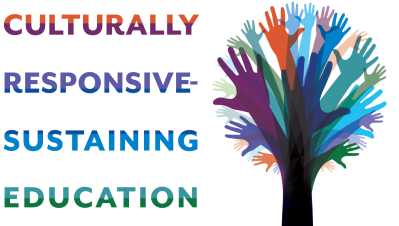Authentic and Productive Conversations about Bias, Racism, and Privilege
Article from Roseann Bayne
A resource for Phase 2, Building Capacity of the Culturally Responsive-Sustaining Education Implementation Roadmap
Resource: Cultural Competence Now: 56 Exercises to Help Educators Understand and Challenge Bias, Racism, and Privilege by Vernita Mayfield
Conversations in professional development workshops about bias, racism, and privilege can be overwhelming for participants—and facilitators. These conversations, both in and out of school, are critical for culturally responsive-sustaining education, but how can we make these conversations authentic, accessible, and actionable?
The book, Cultural Competence Now: 56 Exercises to Help Educators Understand and Challenge Bias, Racism, and Privilege by Vernita Mayfield, provides both facilitators and participants with plans and milestones for these difficult conversations. The book opens by introducing the highly complex issues of bias, racism, and privilege succinctly in three chapters while still attending to the challenges inherent in these dialogues. Then, the author details learning activities that provide a variety of opportunities for cultural competence enlightenment.
Activities are organized into chapters by learning goals, beginning with activities on connecting yourself to your personal and professional behavior, then presenting activities on adapting your professional practices to meet the needs of each and every student, followed by activities for analyzing policies and practices that inhibit student opportunities and advocating for equitable opportunities for all students. Details on facilitation and learning goals, as well as homework handouts and research-based articles, are included. The activities foster critical thinking, but are targeted and brief, which means that they can support a variety of stakeholders and be integrated into a grade-, school-, or district-level convening or as part of a school board meeting or a community event. Excerpts from the text and activities can also be used in any order, depending on the learning objectives or the entry point of the participants.
Mayfield's entry into what could be considered a crowded field of resources for culturally responsive-sustaining education is unique because of its specific activities and clear advice for creating safe environments for professional conversations about bias, racism, and privilege. Additionally, the text’s readability score emphasizes that it is accessible to the general public and not only academics. I am excited to use this resource in subsequent school-based professional learning experiences for all staff. The activities in this text provide participants and facilitators with a variety of tools—and a voice—for examining their own values and taking action. If you are looking for a text to guide you and your staff on a journey to cultural competence, this may be the one for you.
Roseann Bayne is the Assistant Superintendent of Instruction at CiTi BOCES in Mexico, NY.Much of her 25-plus year educational career has focused on leveling the playing field for students living in poverty in rural central New York.






